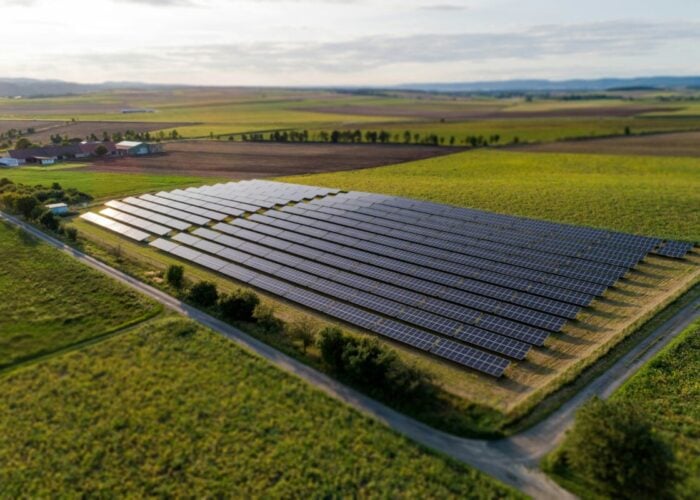Taiwan-based specialist PV module manufacturer, WINAICO said it had received US 1000V UL certification for its WST and WSP-series high-efficiency modules.
Obtaining 1000V UL certification enables WINAICO to meet growing demand in the US commercial rooftop and utility-scale ground mount sectors that are requiring higher system voltage levels, due to designing PV systems with longer module strings that can be a key aspect in the reduction of the complexities and costs of BOS (balance of system).
Try Premium for just $1
- Full premium access for the first month at only $1
- Converts to an annual rate after 30 days unless cancelled
- Cancel anytime during the trial period
Premium Benefits
- Expert industry analysis and interviews
- Digital access to PV Tech Power journal
- Exclusive event discounts
Or get the full Premium subscription right away
Or continue reading this article for free
“WINAICO strives to be the reference point for top quality and reliability in solar solutions,” said Jing Yu, vice president of WINAICO USA. “By passing the most stringent 1000V UL certification, WINAICO’s PV modules will help North American solar developers reduce BOS costs, and improve the returns of commercial and utility installations.”
WINAICO also recently announced the introduction of its “HeatCap” technology, designed to reduce the module performance degradation by micro-cracks in the cells, made worse by external induced stresses on the cells.
WINAICO said that it had also worked with ITRI in Taiwan to evaluate the reliability of HeatCap technology through Dynamic Mechanical Load (DML) and local hot spot tests.
The company reported that the HeatCap and reference modules were put through DML tests of 1000 cycles each at 1000 Pa, 2000 Pa, 3000 Pa sequentially, and verified by electroluminescence (EL) imaging.
WINAICO said that when compared to the reference module, the HeatCap module had significantly less micro-cracks after each stage of DML tests. Local hot spot tests provided evidence of HeatCap’s improvement in heat dissipation to reduce the solar cell temperature compared to reference cells.
The company claims that the HeatCap technology can be used to solve the heating issue common to modules, notably with black back sheets, and improve energy outputs of all-black modules in warmer environments.
The patented technology was recently launched at PV Taiwan 2014.






